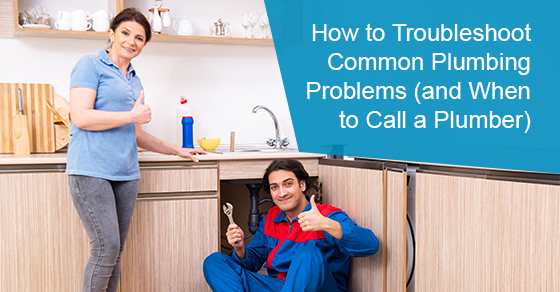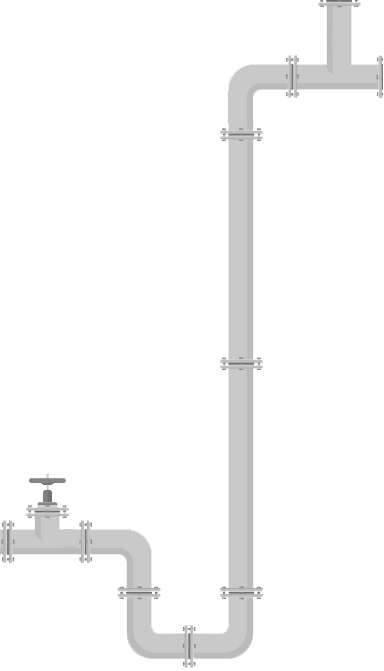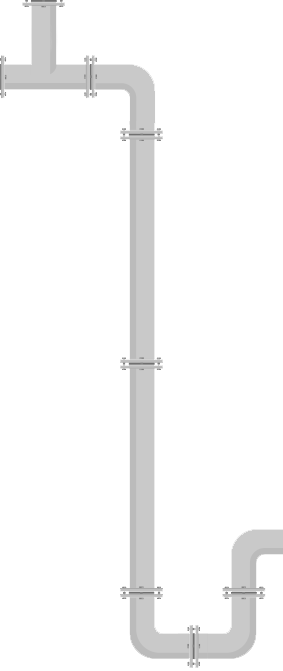How to Troubleshoot Common Plumbing Problems (and When to Call a Plumber)
Posted by Jason Genah on 01-02-2021

A leaky faucet, a toilet that won’t flush, a clogged sink—these are just some of the most common plumbing nightmares that plague homeowners. All of these plumbing emergencies, though, have at least one thing in common: they start small, before spiraling out of control. Often, the culprit is calling your Toronto plumber a little too late.
Don’t DIY: When to Call a Plumber
During a plumbing emergency, many homeowners also prefer to take charge, often thinking that they can handle minor repairs. While DIY hacks have certainly gotten popular, they are definitely no substitute for the guaranteed repair that only a professional plumber can provide. Without a plumber, even the smallest problems can quickly become expensive due to worse damage from failed DIY repairs.
So, what can you do? Here are some basic plumbing troubleshooting hacks you can try before your plumber arrives:
Unclog the Toilet
Toilets clog mainly as a result of flushing items that don’t belong there. Improper disposal of common waste items like baby wipes, cotton swabs and rounds, feminine hygiene products, and dental floss will clog any toilet. These types of waste are made of materials that don’t break down in the toilet plumbing system, and instead clog the pipes.
The fastest way to unclog a toilet is using a plunger. The best plunger for the job is fitted with a cap over the suction, which is designed specifically for toilets. Alternatively, you can use an accordion plunger.
Still clogged? Now it’s time to call a plumber. They can use professional tools like an auger to snake the drain and break up the blockage. If you’re not handy with a plunger, it’s best to leave it with the pros; a plumber will know exactly what to do to unclog the toilet in no time.
Unclog the Sink
With most washing and waste disposal done in the bathroom or kitchen, it’s unsurprising that these sinks often suffer from clogs. Bathroom sinks frequently get hair, cosmetics, and even skin flakes, while kitchen sinks flush out oil and greasy fat, food scraps, and soap scum. These clogs cause standing or pooling water, indicating slow or blocked drainage. For small obstructions, you can try pouring very hot water down the drain to dissolve the clog.
However, pay attention to recurring blockages. If a clogged bathroom or kitchen sink has become a regular occurrence, it’s time to call a plumber. They can use a drain plunger, chemical drain opener, or other professional tools to unclog the sink, and prevent larger damage like a back-up.
Fix a Leaky Toilet
Unlike clogs that prevent flushing, leaking toilets are more likely to go unnoticed; that is, until water pools on the bathroom floor, indicating an internal drain in the tank. By the time it’s noticed, a leaky toilet will already have wasted up to hundreds of gallons in a day.
Call a plumber to repair a toilet leak. They can replace the rubber flapper to restore the tight seal of the tank, or fix the chain attached to it that prevents the flapper from sitting flush at the bottom.
Unclog Multiple Drains
A single clog that occurs once is an easy fix, but several blocked drains require a plumber. Multiple drainage problems often indicate an obstruction in the vent lines, which affect many drains at once. This is a job for a professional plumber, who can use a pressure device or auger that reaches 3 to 5 feet below to dislodge the clog.
Get Rid of that Smell
What’s that smell? No matter how much you mask it with an air freshener, the foul odour of a stinky drain will definitely waft around your home. But why does it smell so bad?
These foul stenches are often caused by rotting food scraps building up inside the pipe, essentially clogging it. Try this easy hack: pour a mixture of vinegar and baking soda down the drain and let it sit for a while; then, flush with hot tap water.
If the bad smell persists, you can call a plumber to detach the P-trap and see if there are waste items lodged in it. A thorough cleaning will get rid of the odour. However, if you haven’t used the sink in a while, the odour might be due to lingering water that’s gathering bacteria or evaporating. To prevent this, make sure to run the tap once in a while, or clean the sink with a safe amount of bleach.
Pay Attention to the Sewer
When left unattended, clogs and drainage issues can eventually progress to foul-smelling backed-up sewers. Sewer line clogs affect all of the drains, resulting in sinks pooling water, or worse, indoor flooding. While one clog might be easy to handle, don’t attempt a DIY when it comes to sewer line clogs—always call a licensed plumber to repair these, and conduct regular maintenance to prevent future problems.
Find Leaky Pipes
Pipes are the core part of a plumbing system, so even the smallest leaks need to be repaired before the hydro bill skyrockets, or worse, an old pipe breaks or collapses. While most pipes these days are made of PEX (cross-linked polyethylene), older buildings still have copper pipes. These old pipes don’t do well in extreme temperatures, often causing them to break, if not corrode.
Call a plumber if you suspect a pipe leak. You’ll need a professional to detect the leak, and schedule a replacement to update your home’s plumbing system.
Repair a Failed Sump Pump
Sump pumps often fail due to prolonged periods of heavy rain or snow, as well as power outages. It doesn’t help that when improperly installed in the first place, it will work harder and fail sooner.
Today, many plumbers recommend an alternative irrigation mechanism. Rather than install a sump pump, you can opt to have the gutters realigned, allowing them to drain away from the foundation. While costly due to the re-leveling of patios, decking, and concrete surfaces, sloping the foundation to direct water away is guaranteed to work better in the long term.
Restore Water Pressure
Not enough water, or no water at all? You need to check the water pressure, and ask your plumber to install a new shower head or faucet. If that doesn’t work, they may need to correct the valve. They can also check for leaks, as these can lead to a water line break due to frost build-up in the colder months.
Bring Back Hot Water
When the issue is no hot water, your plumber can look for signs of corrosion and rust, especially if the heater is about 8–13 years old. As well, they will check for sediment build-up at the bottom of the tank, which can clog and reduce water flow. Your plumber can clean the tank, confirm that you are using the right-sized water heater, and configure the heater to ensure proper water pressure levels and cooling cycles.
To learn more about common plumbing issues and when you need to call a plumber for an emergency repair, call Drain King Plumbers in Toronto at 833-983-5663, or contact us here.




